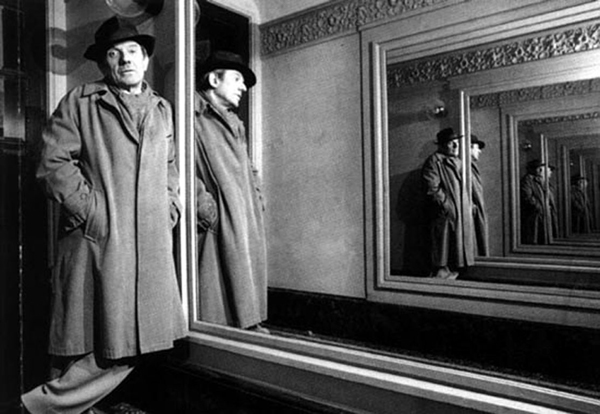The Beginner’s Guide to Hegel

Jesse Hudson, one of the most monastic and scholarly people I know, started talking about Hegel on Facebook. Hegel’s work has always felt intimidating to me, and often when I read his writing, I think that he’s totally full of shit—that he took simple, intuitive ideas and hyperinflated their elucidation to appear logically rigorous and philosophically masterful. Basically, I got thinking that Hegel was a damned charlatan.
But I also knew that Jesse deeply responded to Hegel’s philosophy. So I asked him some questions for the Hegel-averse and uninitiated, following the format of The Beginner’s Guide to Deleuze with Christopher Higgs. Here we go:
Why should we read Hegel?
Hegel is fucking difficult, right?
In order to proclaim the importance of reading Hegel, the initial hurdle to overcome is the impression one initially has in regards to the supposed difficulty (or, stated more extremely, incomprehensibility) of Hegel’s texts. This isn’t necessarily a misinformed opinion of Hegel since, without doubt, Hegel’s texts are extraordinarily rigorous and densely packed. It isn’t uncommon to spend hours (or hours and hours over the span of several days) unpacking a mere page or two of his Phenomenology or Logic. This is due, in large part, to the fact that Hegel (like, it must be admitted, any other philosopher) writes with his own peculiar terminology. Derrida has differance; Deleuze has rhizome; Hegel has being-for-self, negation of the negation, positing presuppositions, ‘sublation’, being-in-and-for-self, etc. Hence, reading Hegel involves a great deal of work that is not unlike the work involved in learning a new language. But, to paraphrase Derrida, you wouldn’t necessarily decry the difficulty of a thermonuclear physics text or a text discussing the subtleties of semiotics and differential calculus. Therefore, the cries of anger and frustration seem a bit odd when directed towards philosophy (texts that are undoubtedly as theoretical and ‘specialized’ as the previous examples). READ MORE >
The Beginner’s Guide to Deleuze

Over lunch, Christopher Higgs and I talked about Gilles Deleuze. I was saying how a lot of my friends–Chris, Blake Butler, and Derek White, to name a few–are really into his writing, especially the ginormous book A Thousand Pleateaus, co-written with Felix Guattari. I’ve tried to read it and get into it a few times, and kept putting the book up, scared off by not being able to immediately comprehend the text, not being able to decipher the numerous codes, terms, coinages. Recently, I changed. I picked up A Thousand Pleateaus again and flipped to a random chapter and read. I enjoyed it, and am enjoying it. Like my experience with Finnegans Wake, there are lucid swathes that I feel I understand, and then there are times when it’s packed dense or just orgiastically conceptual and I tune out a bit. But that process of coming in and out of lucidity is nice. Sort of trancelike.
I mentioned asking Chris some questions about Deleuze, his thinking, the books. I’m sort of acquainted with his ideas through the book A Thousand Years of Nonlinear History (amazing book!), and what Deleuze I’ve now read. But, let me ask you/Chris some maybe dumb questions.
Firstly: Why should we read Deleuze?
Deleuze is the future. He is almost the now, but not yet. Just out of reach, just over the horizon, he is akin to the force that makes the sky pink after the sun sets and pink again right before the sun rises. He is both pre and post everything, like the feeling before a meal of being famished followed by the feeling after the meal of being stuffed. He does what no other thinker before him could do: he upends Plato, he quiets Hegel, he puts all the little thinkers to bed. READ MORE >
